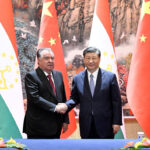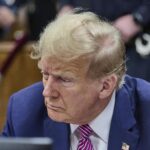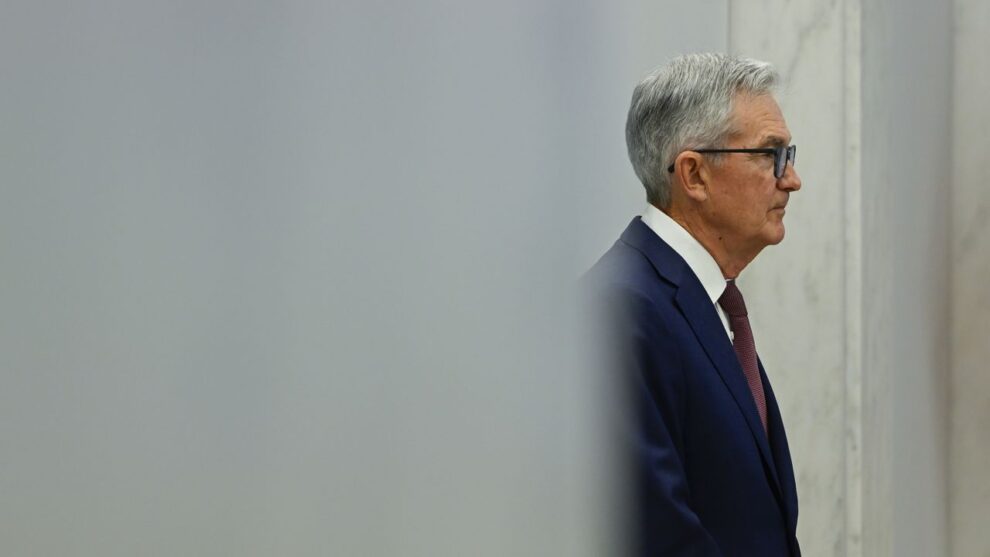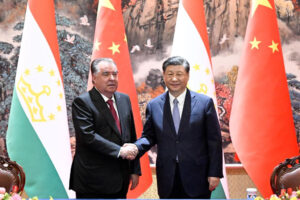Federal Reserve Chair Jerome Powell is leaving the door open for additional interest rate hikes to defeat inflation, he said Thursday.
“We know that ongoing progress toward our 2% goal is not assured: Inflation has given us a few head fakes,” Powell said at a conference hosted in Washington, DC, by the International Monetary Fund. “If it becomes appropriate to tighten policy further, we will not hesitate to do so.”
If the Fed hikes again, it will likely only be once, and may come during the US central bank’s upcoming policy meeting in December. However, investors are bullish about another pause in rate hikes next month, according to fed funds rate futures.
As Powell began to deliver his speech, he was interrupted by climate protesters who made their way onto the stage. It’s the second time in the past month that the Fed Chair has been interrupted during an appearance, after he was escorted off stage in October at the Economic Club of New York, and it clearly raises questions about security.
After returning to the podium, Powell made it clear the Fed is carefully balancing the risk that inflation could reignite versus the risk that the central bank could cause unnecessary economic damage.
He said “the unwinding of pandemic-related supply and demand distortions is playing an important role in the decline of inflation.” But he added that demand will likely have to slow for the central bank to be assured that inflation is on track to cool to 2%.
Stocks fell broadly Wednesday, with yields spiking following Powell’s comments. The S&P 500 closed the day 0.8% lower. The Nasdaq Composite dropped 1%, and the Dow fell 221 points, or 0.7%.
Powell wants to see weaker demand
The US economy expanded at a scorching 4.9% annualized rate in the third quarter, thanks to robust consumer spending. American shoppers doling out for high-profile concerts, films and travel was a hallmark of the summer’s robust economic strength.
That could potentially be a headache for the Fed, since strong demand could be maintaining some upward pressure on prices. The Fed’s mechanism of addressing inflation is by deliberately slowing demand through higher interest rates.
“Going forward, it may be that a greater share of the progress in reducing inflation will have to come from tight monetary policy restraining the growth of aggregate demand,” Powell said.
Interest rates are currently at a 22-year high and the Fed has signaled that it will likely keep rates elevated for longer. Cooling the economy through high interest rates might be trickier than in the past, Powell said.
“It may be that the US economy is structurally a little bit more resilient to to interest rates,” he said, pointing to homeowners who locked in an ultra-low mortgage rate during the pandemic and are not selling their property because of elevated rates for home loans.
The central bank’s latest set of economic projections released in September reflected fewer rate cuts next year than previously estimated.
Powell and other Fed officials have suggested that higher bond yields are playing an important role in cooling the economy since it translates into higher borrowing costs.
“These higher rates are actually affecting people’s mortgages, the costs of all their floating-rate debt is is being affected, so it’s having an effect on the economy,” Powell said.
Treasury yields soared in October, but began to slide following the Fed’s policy meeting earlier this month, with some of it due to the possibility the Fed could be done raising rates.
Powell said it’s not clear exactly what pushed up yields, and that “there are many candidate explanations — five or six of them — it’s easy to get to a half dozen explanations.” Either way, the central bank will watch the bond market closely to help inform its future policy moves.
Other Fed officials hint at December pause
Meanwhile, other Fed officials suggested in public speeches Thursday that the central bank may not need to raise rates further.
Interim St. Louis Fed President Kathleen O’Neill Paese said during a speech in Jeffersonville, Indiana, that the job market’s steady slowdown over the past year and the recent run-up in Treasury yields were two key reasons why she supported the Fed’s decision to hold rates steady earlier this month.
And ongoing uncertainty over the economy might mean the Fed “can afford to await for further data before concluding that additional policy tightening is appropriate,” she said.
Richmond Fed President Thomas Barkin hinted that the Fed could forgo additional action because the economy perhaps hasn’t felt the full impact of the Fed’s previous 11 rate hikes just yet.
“In aggregate, we are still not seeing the full effects of policy,” Barkin said during a discussion in New Orleans.
Source: CNN











